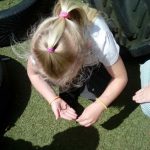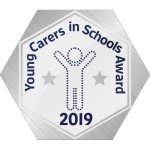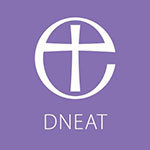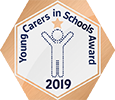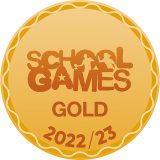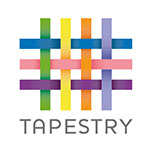Aims of the Early Years Foundation Stage
- To provide a welcoming, happy and caring environment where each child is valued as an individual and feels safe and secure .
- To develop independence, self-confidence, self-control, confidence and self-discipline.
- To help each child develop social skills including awareness and understanding of peers and adults.
- To encourage friendship and understanding towards the needs of others.
- To foster good relationships between home, school and the community.
- To develop an enquiring mind, an interest in learning and enthusiasm towards the next stage of school life.
- To develop skills in relation to the seven areas of learning within the Early Years Foundation Key Stage curriculum.
- To ensure a smooth transition into the Reception unit.
Early Years Foundation Stage Curriculum
There are 3 prime areas in the EYFS curriculum: Personal, Social and Emotional Development, Communication and Language and Physical Development. These areas are key in order for the four specific areas to be developed.
Personal, Social and Emotional Development
 PSED is a crucial part of a child’s development in Early Years.
PSED is a crucial part of a child’s development in Early Years.
PSED involves helping children to develop a positive sense of themselves, and others; to form positive relationships and develop respect for others; to develop social skills and learn how to manage their feelings; to understand appropriate behaviour in groups; and to have confidence in their own abilities. Activities to promote this could be circle times, playing turn taking games and working with a partner or within a small group to complete a challenge.
Physical Development
 Physical Development involves providing opportunities for young children to be active and interactive; and to develop their co-ordination, control, and movement with gross movements and smaller fine motor control. Children must also be helped to understand the importance of physical activity, and to make healthy choices in relation to food.
Physical Development involves providing opportunities for young children to be active and interactive; and to develop their co-ordination, control, and movement with gross movements and smaller fine motor control. Children must also be helped to understand the importance of physical activity, and to make healthy choices in relation to food.
Communication and Language
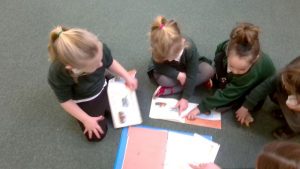 Communication development involves giving children opportunities to experience a rich language environment; to develop their confidence and skills in expressing themselves; and to speak and listen in a range of situations. Opportunities to talk about pictures in books, ‘Show and tell’, as well as small group work all encourage communication skills.
Communication development involves giving children opportunities to experience a rich language environment; to develop their confidence and skills in expressing themselves; and to speak and listen in a range of situations. Opportunities to talk about pictures in books, ‘Show and tell’, as well as small group work all encourage communication skills.
The prime areas of the curriculum are supported by four specific areas, which teach children key skills and knowledge for development:
Mathematics
 Mathematics involves providing children with opportunities to develop and improve their skills in counting, understanding and using numbers, calculating simple addition and subtraction problems, doubling and halving. The children will explore and learn the names and to describe 2D and 3D shapes, as well as continuing and creating patterns. When measuring, children will be encouraged to compare two, three or more different lengths, weights or capacity.
Mathematics involves providing children with opportunities to develop and improve their skills in counting, understanding and using numbers, calculating simple addition and subtraction problems, doubling and halving. The children will explore and learn the names and to describe 2D and 3D shapes, as well as continuing and creating patterns. When measuring, children will be encouraged to compare two, three or more different lengths, weights or capacity.
Literacy
 Literacy development involves encouraging children to link sounds and letters and to begin to read and write. Children must be given access to a wide range of reading materials (books, poems, and other written materials) to ignite their interest.
Literacy development involves encouraging children to link sounds and letters and to begin to read and write. Children must be given access to a wide range of reading materials (books, poems, and other written materials) to ignite their interest.
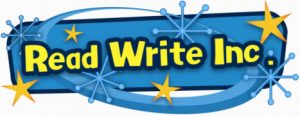
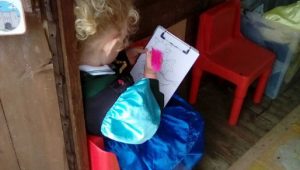 The Read Write Inc. programme is for primary school children learning to read. It enables every child to become a confident and fluent reader at the first attempt. Every child who completes Read Write Inc. learns to read fluently and confidently. The children learn 44 sounds (not letter names) and the corresponding letters/letter groups using simple picture prompts, learn to read words using sound blending, read lively stories featuring words they have learned to sound out and show that they comprehend the stories by answering ‘Find It’ and ‘Prove It’ discussion questions. Once children have learnt their phonics sounds, they are supported and encouraged to apply them to their writing.
The Read Write Inc. programme is for primary school children learning to read. It enables every child to become a confident and fluent reader at the first attempt. Every child who completes Read Write Inc. learns to read fluently and confidently. The children learn 44 sounds (not letter names) and the corresponding letters/letter groups using simple picture prompts, learn to read words using sound blending, read lively stories featuring words they have learned to sound out and show that they comprehend the stories by answering ‘Find It’ and ‘Prove It’ discussion questions. Once children have learnt their phonics sounds, they are supported and encouraged to apply them to their writing.
Helicopter Stories
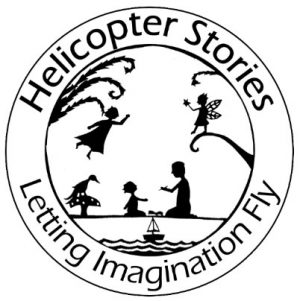 Helicopter Stories is an Early Years, Foundation Stage and Key Stage 1 approach to communication and literacy skills based on the Storytelling and Story Acting curriculum.
Helicopter Stories is an Early Years, Foundation Stage and Key Stage 1 approach to communication and literacy skills based on the Storytelling and Story Acting curriculum.
In its simplest form, Helicopter Stories lets children dictate their stories, which are written down exactly as they are told, by an EYFS or Key Stage 1 practitioner. The children then gather around a taped out stage and the stories are acted out.
Alongside the simplicity of this approach is an ethos that is child-centred, creating a culture of curiosity and wonder at the imagination during both the telling and the acting out of their stories.
Understanding of the World
Understanding the world involves guiding children to make sense of their physical world and their community through opportunities to explore, observe and find out about people, places, technology and the environment.
Expressive Arts and Design
Expressive arts and design involves enabling children to explore and play with a wide range of media and materials, as well as providing opportunities and encouragement for sharing their thoughts, ideas and feelings through a variety of activities in art, music, movement, dance, role-play, and design and technology.
Child-Initiated Activities
Well-planned play is a key way in which children learn with enjoyment and challenge during the Foundation Stage. During some of the school day, children will choose how they play with the educational resources/toys available; this is known as child-initiated play. The children are leading their own learning and during this time, the practitioners use their expertise to develop children’s ideas and encourage children to work together. Observations and photographs are also made during this time to plan for the children’s next steps for learning.
Adult-Led Activities
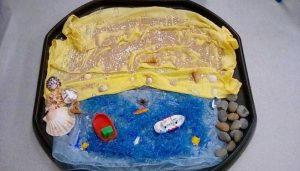 There will be time allocated each day for adult-led tasks. This may be as a whole class or in small groups. The teaching staff set up and lead an activity desired to fulfil certain learning objectives and develop particular skills.
There will be time allocated each day for adult-led tasks. This may be as a whole class or in small groups. The teaching staff set up and lead an activity desired to fulfil certain learning objectives and develop particular skills.
Outdoor Learning
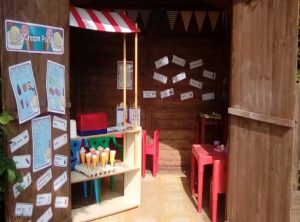 Our outdoor area is an extension of the classroom and we are developing it all of the time. The outdoor area is a space shared with Nursery to allow the children across the Early Years to form relationship and play together. Using the outdoor area encourages skills of negotiation and turn-taking, speaking and listening, scientific enquiry as well as the obvious physical ones.
Our outdoor area is an extension of the classroom and we are developing it all of the time. The outdoor area is a space shared with Nursery to allow the children across the Early Years to form relationship and play together. Using the outdoor area encourages skills of negotiation and turn-taking, speaking and listening, scientific enquiry as well as the obvious physical ones.
Further Information
Creative Art Continuous Provision
Characteristics of Effective Learning
Small World Continuous Provision
Role Play Continuous Provision



